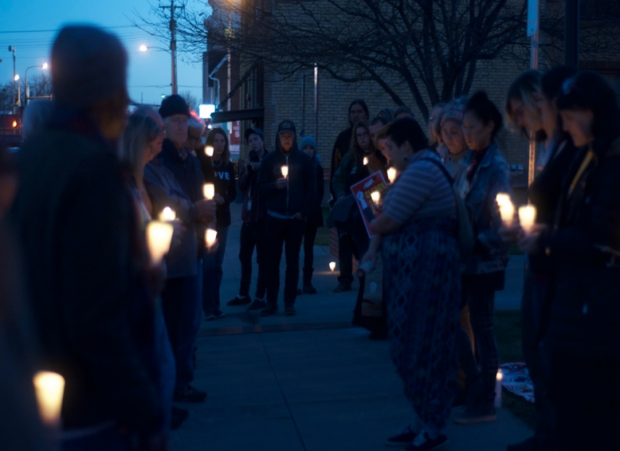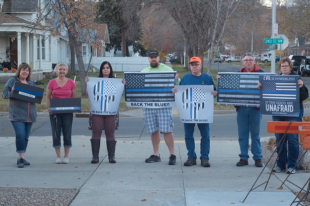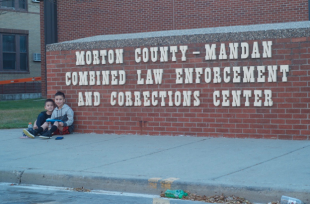“There can be no change without sacrifice”
(Yoon Seok-Hee) “If I gave up the fight,” Rob Sataicum of the Puyallup Tribe, and the host of the acclaimed <Tribal Talk Radio> told me, “and my children find out, how will they be able to go on? How will they love themselves?” The natives protecting the Missouri River are not “fighting” for their reservation, their property rights, or even their sacred places. In the crucible of their struggle against American genocide, they recognize that water is life, and that to protect water is to protect life.
Last night I heard stories of the Native American struggle. The similarities between their struggle for survival is starkly similar to the stories of the Tibetans, the Kurds, the Samis, the Maori, and the many names I have forgotten or are lost to memory. “We have fought for our lands, and we had that taken away, the air is dirty with chemicals and pollutants, and our water is dirty with oil slicks, coal refuse, bottlenecked by dams of concrete and imprisoned in plastic bottles,” says Xi, an Indian healer from Oregon. The only thing left—in the four elements scheme of thought—is raging inferno.
“We all have five fingers on each hand, said Rob. “The four fingers indicate land, air, water, and fire. The thumb—the opposable thumb that makes us human—represents the human element. When humans relate to nature as conquerors, we can only fold our hands in a fist—thumb over four fingers—and fight, fight, and fight.” Many that I have talked to at the camp see this as holding back humanity from its imminent self-destruction.
There are tribes from all fifty states, as well as from Canada and Mexico, represented at Standing Rock. This is a historical moment for the First Nation, which has been divided for so long by internal squabbling and rivalry. Perhaps that is why, despite the near completion of the pipeline (Energy Transfer Partners have finished 97% of the pipeline and hope to finish before the year is over), there is a sense of hope at the camp.
“There can be no change without sacrifice,” a young girl at the protest said. “Buying a plastic water bottle is convenient, but would you put your future in a bottle? We laughed when they first started selling us water in a bottle, but we are not laughing now. A plastic water bottle is convenient, but water is life. Would you bottle, sell, and throw away life for a dapple of convenience? I didn’t think so.”




























































